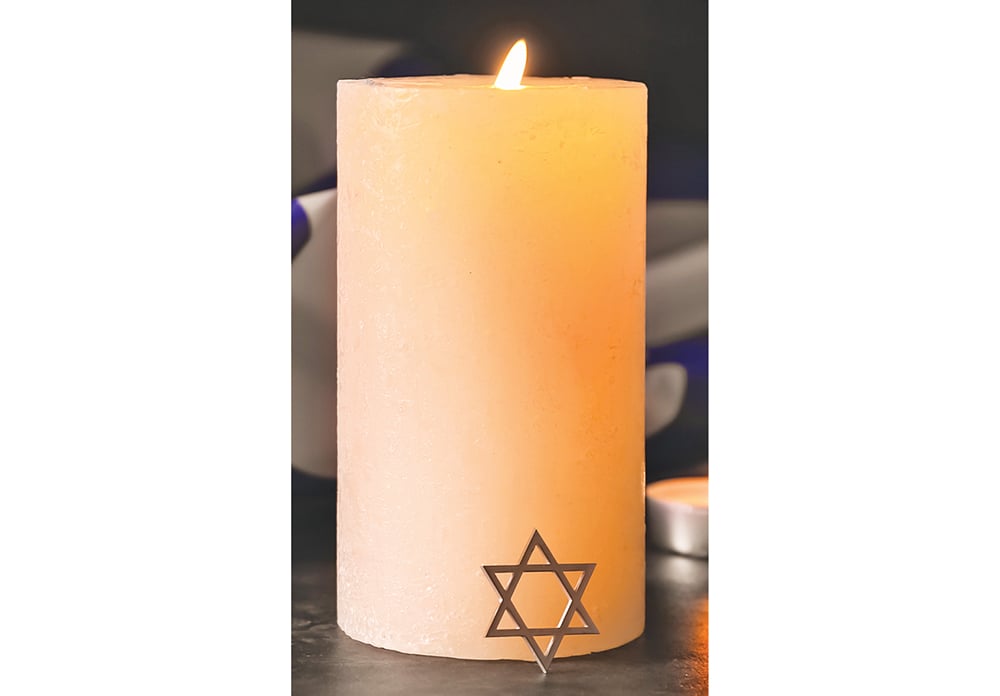
Our forefather Avraham did not have an easy life.
From his earliest days, Avraham was a monotheist in a hostile polytheistic world. Rashi writes that among Avraham’s challenges were 10 trials he underwent to prove his worthiness as the founder of a people who stood apart from the surrounding pagan tribes. Instead of succumbing to despair with each new challenge, Avraham developed a greater trust in God.
Avraham’s most exceptional challenge was the akeida, or the binding of Yitzchak, his son—and heir to the nation of Israel. Even here Avraham suffers—not the loss of Yitzchak but of his wife Sarah, who dies after the akeida. Giving Sarah a burial befitting the first matriarch of the Jewish people was paramount for Avraham: he negotiates with the sons of the Hittite Ephron to purchase the Cave of Machpelah in Hevron.
“I am a stranger and an inhabitant with you,” Avraham tells Ephron’s sons. “Give me burial property with you, so that I may bury my dead from before me.”
The sons acknowledge Avraham as a “prince of God” among them. “None of us will withhold his grave from you to bury your dead,” they say.
Ephron himself steps forward to assure Avraham, “I have given you the field, and the cave that is in it. … Before the eyes of the sons of my people, I have given it to you. Bury your dead.”
Avraham finalizes the deal with 400 shekels in silver. He buries Sarah in the cave, thereby legitimating the purchase of the Machpelah field and cave from Ephron’s sons.
Why is the story of Avraham’s burial plot purchase so important to us?
Our sages teach: “Ma’aseh avot siman lebanim”—The actions of our patriarchs are a sign for their children. Avraham insisted that he purchase not just a grave, but the field, too. He was teaching the Jewish people—and all their future generations—that a Jew is distinguished by the way he or she lives and is buried.
Why We Reject Cremation
“As general society goes, so goes the Jewish world,” goes an old Yiddish expression. In short, we cannot close ourselves off completely from the world around us. At the same time, we need boundaries to ensure we retain our uniqueness. It’s never easy to be different, but if Avraham hadn’t had the courage to be different, he wouldn’t be the progenitor of the Jewish people. Being Jewish demands that we be different, even at odds with the mores of current-day secular American life.
One such American custom is cremation at the end of life. The U.S. cremation rate is expected to rise from 60.5% in 2023 to 81.4% by 2045. Americans have chosen cremation for philosophic, ecological or economic reasons. By contrast, Judaism categorically rejects cremation. The directive to bury a body in the ground comes from Genesis 3:19: “By the sweat of your brow shall you get bread to eat, until you return to the ground. For from it you were taken. For dust you are, and to dust you shall return.”
As the Hebrew Free Burial Association chaplain for 30 years, I have officiated at thousands of traditional Jewish burials. Of those I oversaw in 2024, 15% were instances in which families had originally chosen cremation. HFBA was able to convince them to bury their loved ones according to halacha, or Jewish law. Some funerals attract 50 mourners. Some are unattended except for me. Some draw Jews who carry the coffin and fill the grave with their hands. Some draw Jews who know nothing about Jewish tradition.
Each funeral is unique, but all share one thing in common: A fellow Jew is buried according to Jewish law. In carrying out the burial tradition, we follow the example Avraham set for us over 3,700 years ago.
Rabbi Shmuel Plafker is chaplain of the Hebrew Free Burial Association.








